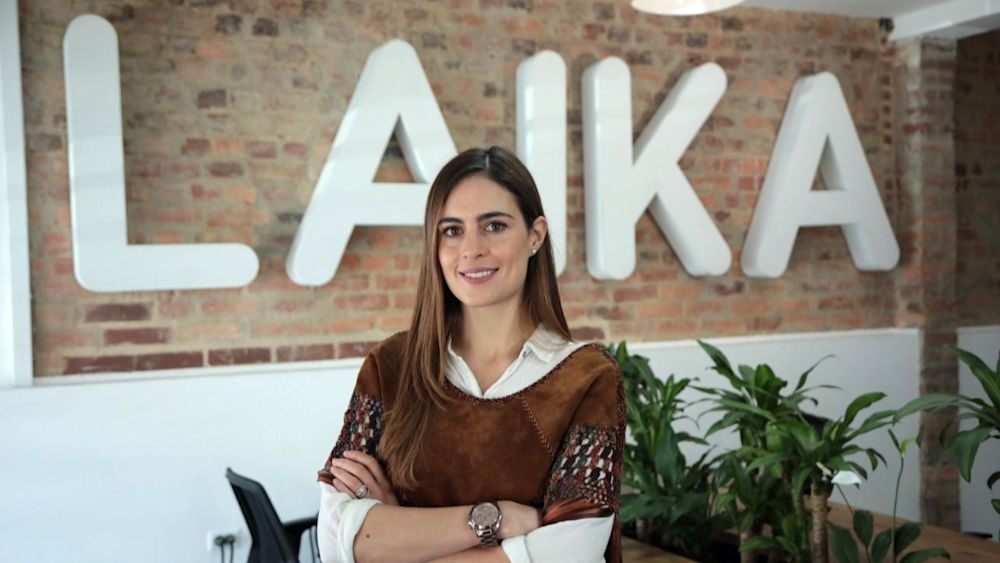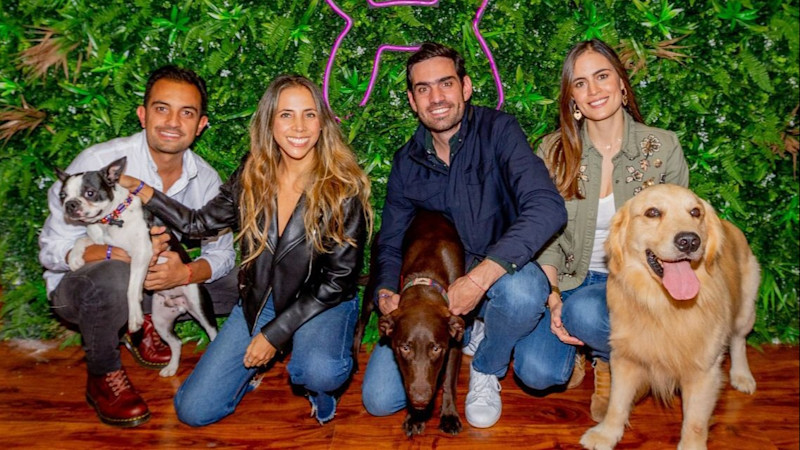Laika: The Startup Taking Over the Pet World in LatAm
Table of contents
The Org interviewed Manuela Sanchez, co-founder and Chief Growth Officer at Laika, a “one-stop shop” e-commerce platform for pets.

A family affair
Sanchez studied business administration in her hometown, Bogotá, and started developing her career in the tech industry, working for IBM and Oracle, where she thrived but didn’t feel fulfilled. “I was doing great but I wasn't happy. I was living under the idea that only on the weekends could I have a good time,” Sanchez told The Org.
She decided to try her luck within the startup ecosystem by taking a job at Rappi, where she quickly came to understand that building a startup wasn’t rocket science. “I learned that things in these hyper growth startups are done by ordinary people, just like me,” she said. This gave her the impulse to quit in 2017 and start crafting her own entrepreneurship path.
During the same time period, her brother Camilo Sanchez, now the co-founder and CEO of Laika, was struggling running his pillows and mattress business.
It was during a Sunday family lunch where the Sanchez siblings made the decision to start an e-commerce website for the pet industry. Felipe Samper, Manuela’s husband, was at the table and as soon as the conversation finished, he connected them with Tulio Jimenez, an old friend of his that worked for Jeronimo Martins, a Portuguese supermarket, where he ran the pet department.
In a matter of a phone call, Manuela, Camilo, Tulio and Tulio’s wife Andrea became co-founders. “Literally my husband took his phone and called Tulio to talk over the idea. Since then we’ve been partners in Laika. We ran with luck because 95% of companies fail because of their partners,” Sanchez said.

A not-so-lean start
Contrary to popular knowledge that startups should start lean and constantly validate the market in order to build and scale, Laika’s founders went “all in” from day one, confident that their intuition was right and their vision would allow them to overcome any obstacles.
“Having a big vision is key to any company. Laika was born wanting to take over the petworld in Latin America. We were 10 people on payroll without having any revenue or external funding. We were really invested in the idea,” Sanchez said.
They were so invested in the idea that a big chunk of the money went to build a mobile app without proof of any product-market fit. “Looking back we were really lucky because we spent all the money developing an app without having any market validation. But it turned out well, it gave us a mobile first mentality, and from day one our biggest revenue channel is the app,” Sanchez said.
Laika started selling basic retail products for pets: food, accessories and toys.
The first month Laika launched, it sold $3,000 in products, with their customer base primarily consisting of friends and family. “I remember that I texted all my friends or acquaintances who I knew had a dog or a cat,” Sanchez recalled. But the real excitement came the second month, when orders started coming from people no one knew. “When organic customers began to arrive, we realized that we had something big in our hands,” she said.
The company was named after the first dog that was sent to space: Laika. “It took us a couple of months to come up with the name. I wanted something catchy but smart. Laika, the first dog in outer space told the story of a furry universe. It is a tribute to a star who takes care of furry ones,” Sanchez said.
Taking off
In 2018, with initial traction and growth but a $100,000 bank debt and a cash flow shortage, the Sanchez siblings started looking for funding. Inqlab, a Colombian VC that had recently rejected an offer to invest in another pet e-commerce company, got engaged with Laika’s vision and the capabilities of the founding team. Inqlab invested $350,000 as pre-seed investors.
With operations growing in Bogotá and MedellĂn, Sanchez knew that it was time to take the company to the next level and decided to apply to Y Combinator, popularly known as YC. Despite preparing Laika’s application to the world famous accelerator as if it was a trip to space, the team got rejected. “We prepared the questions as if our future depended on them. We hired a personal English teacher to refine our language skills. We spoke with dozens of entrepreneurs who had passed through YC and took all their recommendations. And at the end we didn’t pass,” Sanchez said.
Six months later, and just a day before applications closed for YC’s new cohort, Sanchez decided to apply again. Without putting in all the effort from the first time, and to Sanchez’s surprise, Laika was accepted.
One thing before YC, and another after
When Sanchez and her team got to Y Combinator, Laika was selling $100,000 of products per month. The objective set by the accelerator was to double the revenue during the four-month program. Laika not only accomplished that revenue goal, but also raised $5 million in a seed round from angel investors including Justin Mateen, the co-founder of Tinder.
“Laika was one thing before YC, and another after it,” Sanchez said. Sanchez thought YC was going to give Laika the secret formula for startups, the “how to” recipe, but instead, the program taught her and her co-founders how to cope with uncertainty, raise money, focus on growth and lead to make things happen. Y Combinator gave Laika the credibility boost it needed, the leadership skills the team was missing, the motivation to believe and the skills to raise money to fuel its future growth.
“In YC I felt like I was in a movie,” Sanchez said. On one hand, she was sharing time and learning with entrepreneurs that seemed to be in another league. “Sometimes I asked myself if they (YC) made a mistake with us. People in our cohort were so smart, so capable, that we were a little intimidated just being there with them, but at the same time happy and grateful for being part of it,” Sanchez said.
This new ecosystem also showed the founders that they were meant to be big. “In Colombia we were told hundreds of times that we had a great idea and a great team, but few actually invested in us. The total opposite happened in YC. We started to receive daily emails of people ready to do a wire transfer without hearing our full deck,” Sanchez recalled.
Who let the dogs out
“The story would have been very different if we had not gone to Y Combinator,” Sanchez said. Since the YC experience, Laika has been a rocket ship. The company has at least quadrupled its revenue annually, and raised in funding.
In fall 2020 Laika raised a $10 million series A led by Streamlined Ventures to consolidate its operation in the Colombian market and expand successfully to Chile. In January 2022 it closed a $48 million series B round led by Softbank to conquer Mexico, build new services and products and set the foundation to expand to the rest of LatAm.
“Laika’s model is based on community. We do not want this to just be transactional; we want to be the brand that accompanies the well-being of pets.” Sanchez said. With this mindset, Laika’s portfolio includes a $20 membership, similar to Amazon Prime, in which 70% of its sales stem from the members; a 24/7 vet line for customers; and a new pet insurance service.
The company serves more than 300,000 active users and employs 700 full time workers, including its delivery team. Laika’s short-term objective is to achieve unicorn status by the end of the year. “We are going to be the first pet unicorn in the region, but we know this is just a tag, what we are really aiming for is to be the ally for all pet owners in LatAm,” Sanchez said.
Sign up now:


The ÂÜŔňÂŇÂ× helps
you hire great
candidates
Free to use – try today